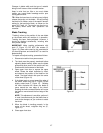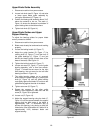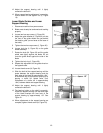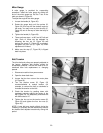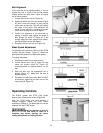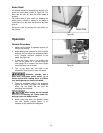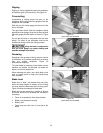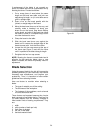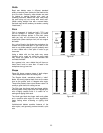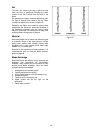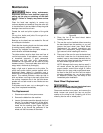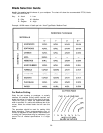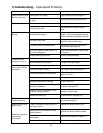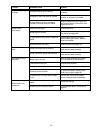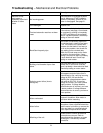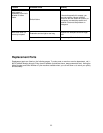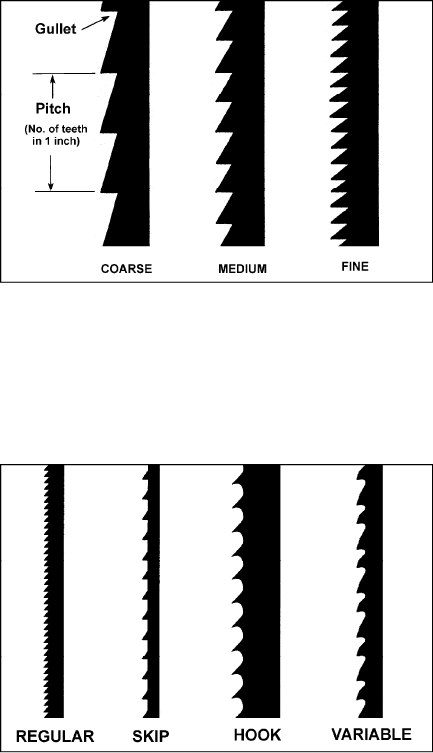
25
Width
Band saw blades come in different standard
widths, measured from the back of the blade to the
tip of the tooth. Generally, wider blades are used
for ripping or making straight cuts, such as
resawing. Narrower blades are often used when
the part being cut has curves with small radii.
(When cutting straight lines with a narrow blade,
the blade may have a tendency to wander, causing
“blade lead.”)
Pitch
Pitch is measured in “teeth per inch” (T.P.I.) and
can be constant or variable. Figure 35 shows
blades with different pitches. A fine pitch (more
teeth per inch) will cut slower but smoother. A
coarse pitch (fewer teeth per inch) will cut rougher
but faster.
As a rule of thumb, the thicker the workpiece, the
coarser will be the blade pitch. If you have to cut a
hard or very brittle material, you will probably want
to use a blade with a finer pitch in order to get
clean cuts.
Using a blade with too few teeth may cause
vibration and a rough cut, while too many teeth
may cause the gullets to fill with sawdust and
overheat the blade.
As a general rule, use a blade that will have no
fewer than 6 and no more than 12 teeth in the
workpiece at any given time.
Shape
Figure 36 shows common types of tooth shape.
Tooth shape has an effect on cutting rate.
The Regular blade, sometimes called a “raker”
blade, has evenly spaced teeth that are the same
size as the gullets, and a 0-degree rake angle.
These offer precise, clean cuts at slower rates. It is
usually a good choice for cutting curves.
The Skip type has fewer teeth and larger gullets,
allowing faster cutting rates than the Regular type,
with a slightly coarser finish. It is useful for re-
sawing and ripping thick stock.
The Hook type blade has larger teeth and gullets
and a positive rake angle for more aggressive,
faster cutting when re-sawing or ripping thick
stock.
Variable-tooth blades combine features of the
other styles, and generally produce smooth, quiet
cuts.
Figure 35
Figure 36



